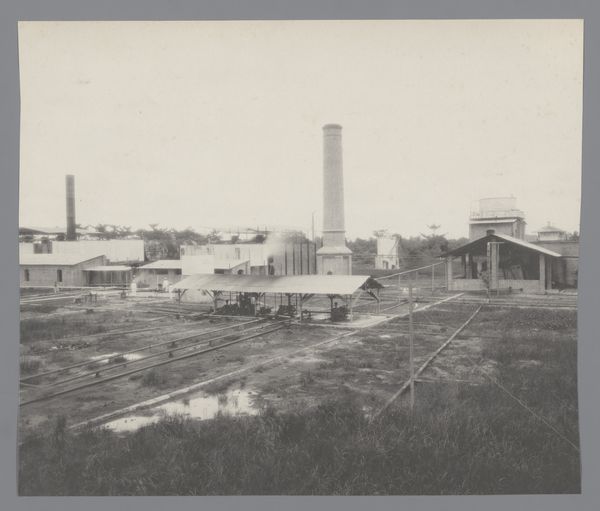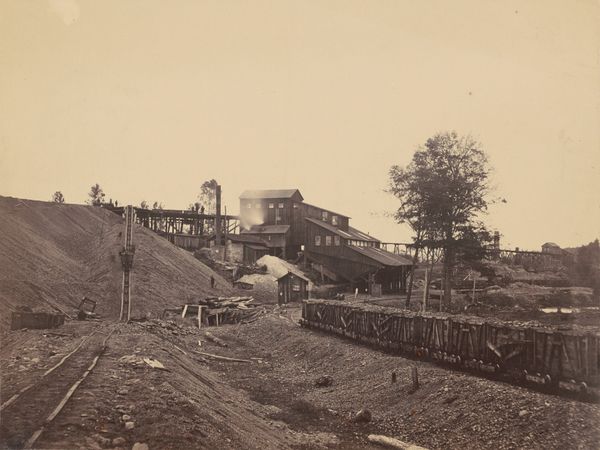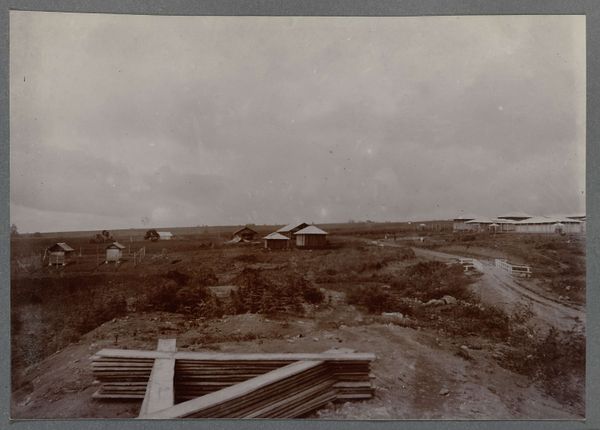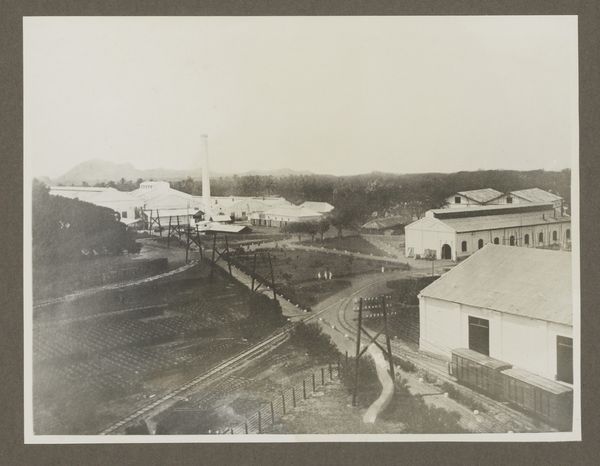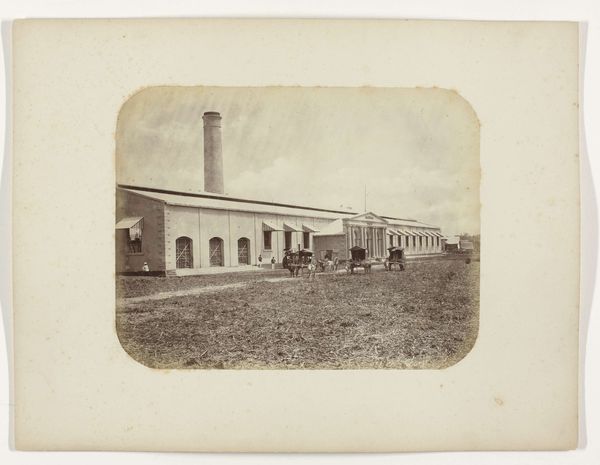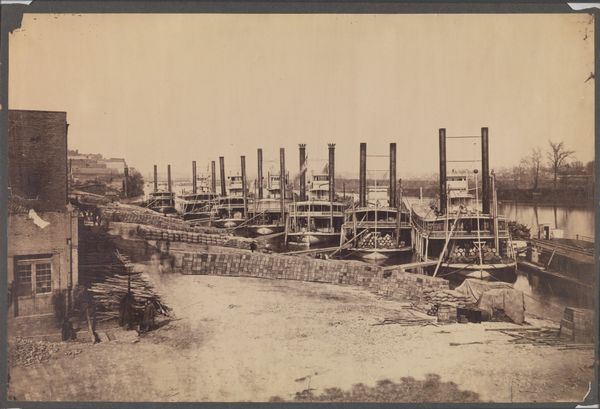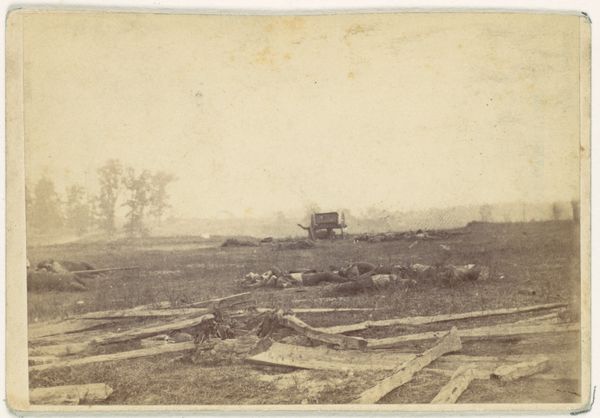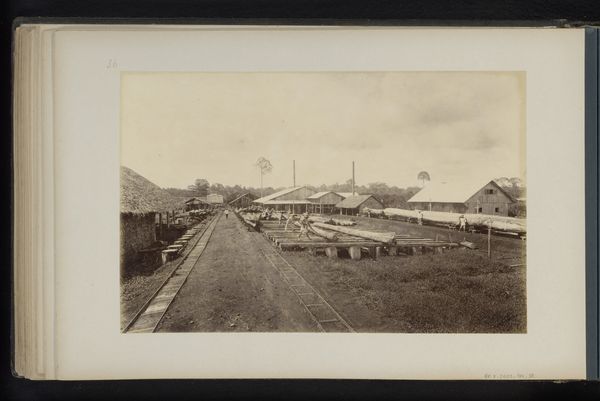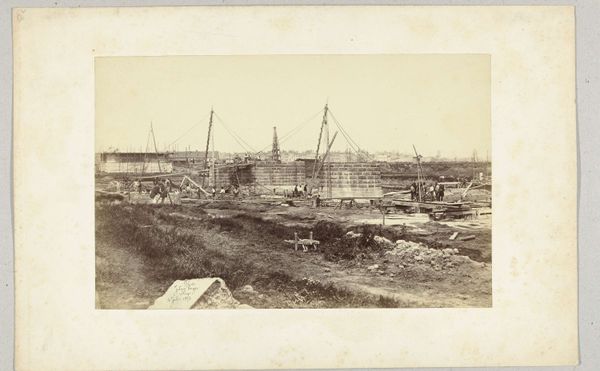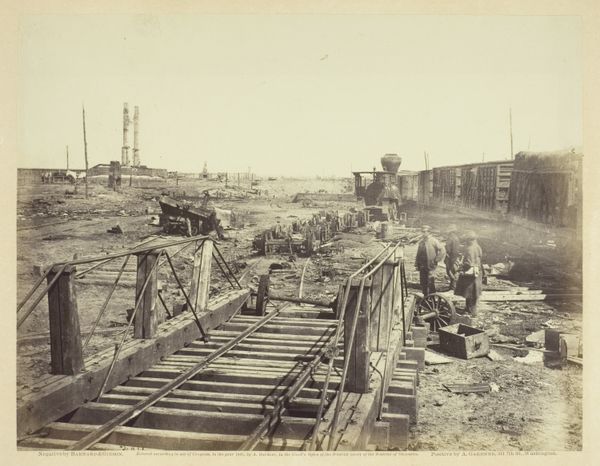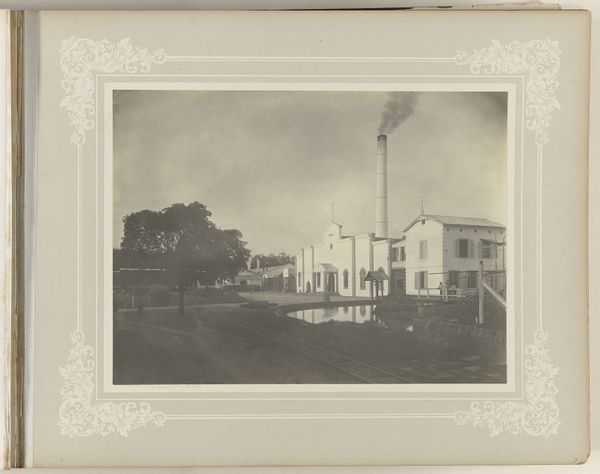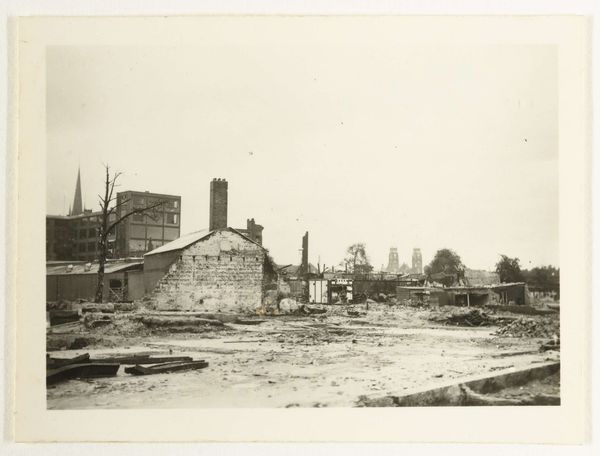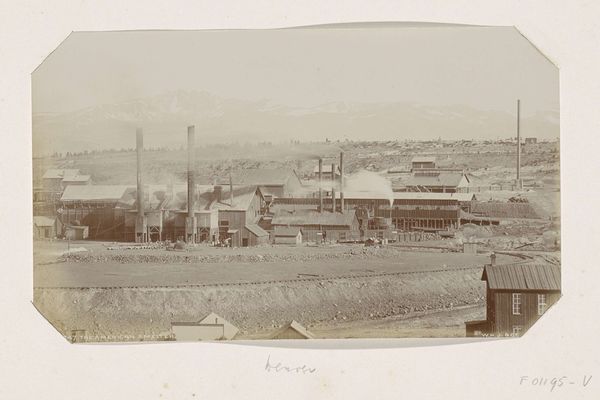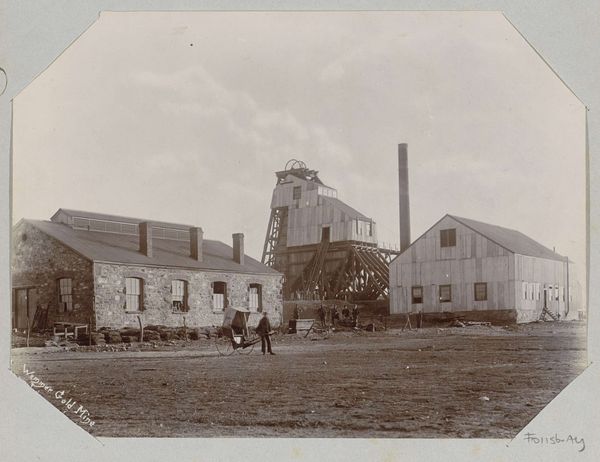
print, photography
#
black and white photography
# print
#
landscape
#
photography
#
monochrome photography
#
realism
#
monochrome
Dimensions: height 88 mm, width 146 mm
Copyright: Rijks Museum: Open Domain
Editor: So, here we have an older print titled "Fabriek in Moengo," created sometime between 1925 and 1927. It's a monochrome photograph depicting what looks like a factory landscape. I'm immediately struck by how the industrial architecture contrasts with the surrounding nature. What do you see in this piece, especially in terms of its historical context? Curator: The photograph, taken in Moengo, Suriname, points to a very specific historical moment – the height of colonial resource extraction. This is likely a bauxite factory. What interests me most is how the image positions the factory, and therefore, industry and colonialism, *within* the natural landscape. We need to consider this image through a postcolonial lens. Editor: Postcolonial lens? Could you expand on that? Curator: Absolutely. We must think critically about who is taking this photo and *why*. The factory isn't simply *in* nature, it is superimposed and dominating. The photograph implicitly celebrates industrial progress but silences the voices and experiences of the Indigenous and Maroon communities whose land was being exploited and whose lives were profoundly impacted by this "progress". Consider how their histories are erased, making space only for the narrative of colonial advancement. Does the smoke billowing from the chimney conjure ideas about ecological impact to you? Editor: It does now that you mention it! I hadn't considered the environmental implications, or the human cost for that matter. It's almost romanticized, isn't it? Curator: Exactly! And that romanticization is a deliberate act of power. By understanding the photo's inherent biases, we can challenge its singular narrative and bring to light the complex realities of colonialism's lasting legacy in Suriname. So what might that look like? Editor: This is giving me a lot to think about. I never would have looked past the initial industrial landscape. Thank you for shifting my perspective. Curator: And thank you. Art, like this photograph, is not just about what you see, but *how* you see it, and through whose eyes. Question everything.
Comments
No comments
Be the first to comment and join the conversation on the ultimate creative platform.
